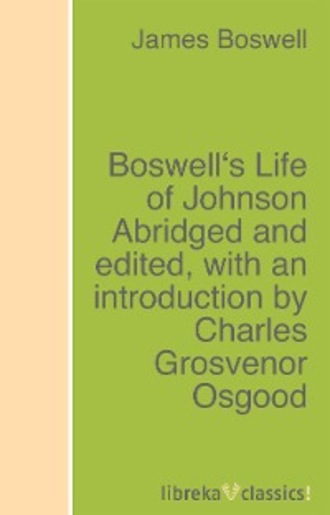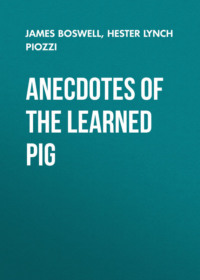Boswell's Life of Johnson Abridged and edited, with an introduction by Charles Grosvenor Osgood

Полная версия
Boswell's Life of Johnson Abridged and edited, with an introduction by Charles Grosvenor Osgood
Настройки чтения
Размер шрифта
Высота строк
Поля
Конец ознакомительного фрагмента
Купить и скачать всю книгу

